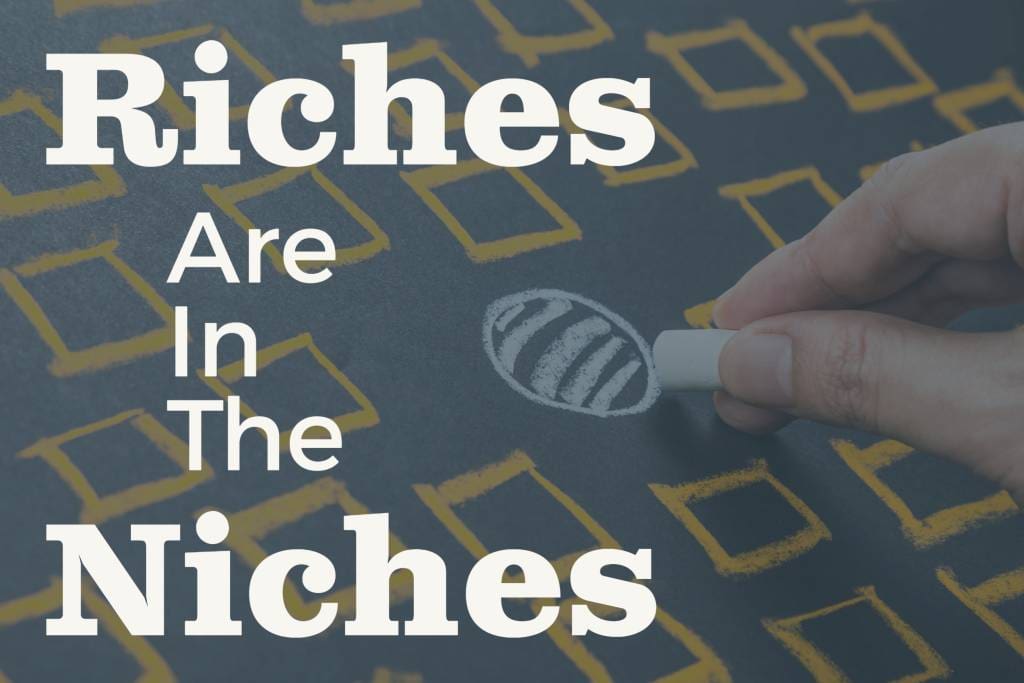Unfortunately, recently I have needed a little bit more dental care than usual. My dentist has referred me to several specialists, and the specialist has always been more expensive than my local dentist, and most of the time, it is by a lot. The adage, “Riches are in the niches” echoes as I pay my bill for the specialists. Generalists have difficulty distinguishing themselves from others by the very nature of who they are — willing to work with the masses. While they can work with the general population, there is more competition for what they do, and they do not get paid as much.
This is as true in the financial planning industry as it is with any other: Getting into the niches can be advantageous — you can separate yourself from other advisors, and you can provide service to a class or group of people at a level that others cannot. While the popularity of the 403(b) industry may make it less niche than other industries, there are certainly opportunities for advisors to differentiate themselves. I see three areas that an advisor must be aware of to differentiate themselves from the 403(b) world: know the culture, know the regulations, and have niche tools to engage your clients.
Know the Culture.
The culture of 403(b) clients is significantly different from the 401(k) world. Clients with 403(b)s are often risk-averse and more touchy-feely (they are working in hospitals or with children), and many of them do not want to learn the complexities of the financial planning world. (Anytime one speaks of a culture, they speak in generalities and there are always exceptions). Many government workers, including teachers, may be attracted to the line of work partly because there is minimal turnover. If that is the case, that risk aversion will play out in how they invest their retirement assets. Many of them are more emotive (and this may be truer with K-6 teachers than others), and understanding that can change how you approach them. Like any other world, they work hard and don’t want to learn new concepts so that they can retire well — but if they are engaging the services of advisors, they are ready to get some help.
Know the Regulations.
The advisor who wants to work in 403(b)/457 worlds faces specific regulations that do not apply to other parts of the financial planning industry. Knowing them is critical to effectively working in this niche. A few examples include:
- ADP testing rules do not apply;
- learning how to help a superintendent negotiate contributions to their 457 account before being hired can help you win their confidence; and
- the elements that should be in a plan document.
There is a good reason there is a 403(b) specific conference for advisors. Educating yourself about the regulations can make the difference between being effective and being in court.
Have Niche Tools.
Finally, have the specific tools that help distinguish you in your niche and help you differentiate yourself from other advisors who bring generalist tools to the industry. Recently we sponsored a focus group in which one teacher said their advisor does not even talk about their pension plan with them — they only talked with them about the money they had invested with them. For any long-term public employee, their pension plan is a significant portion of their retirement income, and to ignore it is to do a disservice to your client. Having the ability to illustrate retirement with their pension plan and other assets can help you stand out from other advisors who ignore what may be your clients’ largest financial asset.
The Bottom Line
Riches may be in the niches, but just showing up is not enough. You have to be able to distinguish yourself in the niche. For the 403(b) industry, you must understand the culture your clients are in, understand the regulations that affect how the industry operates, and you need to bring the best tools to engage your clients in a meaningful way. This can help you find the riches in the 403(b) niche.
Article originally published on NTSA: https://www.ntsa-net.org/news-resources/riches-are-niches


